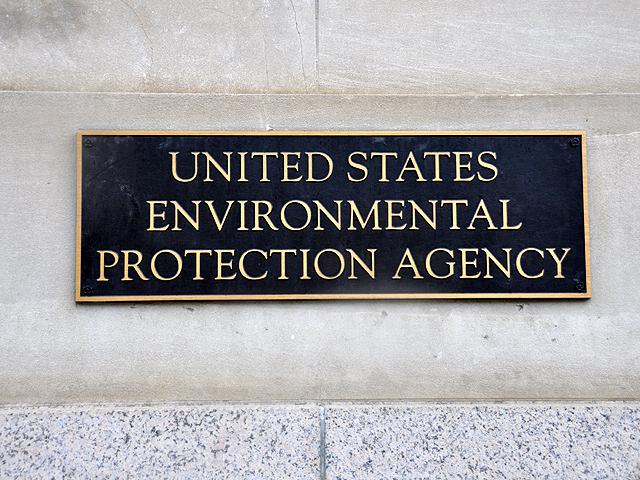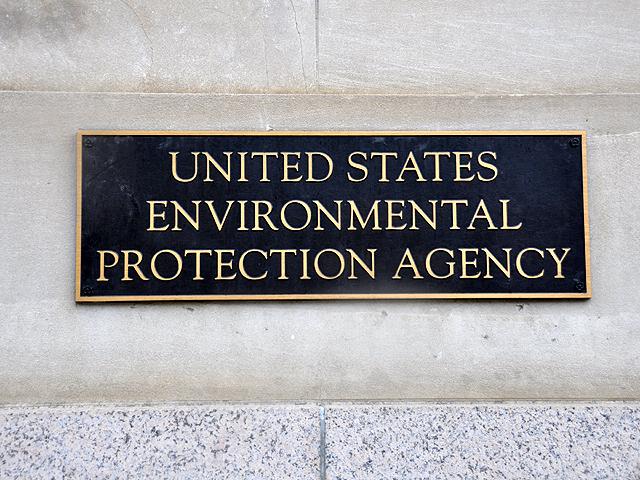Ag Policy Blog
Farm Groups Make the Case to Reduce Federal Regulatory Powers
Farm groups and other regulated industries finally see a chance to knock government agencies off their pedestals in a U.S. Supreme Court case that's all about the amount of deference courts are supposed to give federal regulators.
The U.S. Supreme Court on Wednesday heard a pair of closely watched cases about regulations over herring fishing that dive into a much broader debate. The cases challenge a 40-year-old precedent over the way federal courts grant expertise deference to government agencies to draft rules for laws when Congress is vague on the specific details.
Known as the "Chevron deference doctrine," it goes back to a 1984 case, Chevron v Natural Resources Defense Council. The Chevron doctrine has been cited in 70 different Supreme Court cases over the years and roughly 17,000 lower-court decisions.
Farm groups, in an amicus brief to the Supreme Court, were among the various business lobbies that told justices the Chevron doctrine needs to go away.
Filing a brief in the case were the American Farm Bureau Federation, Agricultural Retailers Association, National Cattlemen's Beef Association, National Pork Producers Council and the North American Meat Institute, joined by groups such as the American Forest and Paper Association and the National Association of Home Builders.
The farm groups explained they want the Supreme Court to "take this opportunity to overrule Chevron," making multiple arguments that parallel those heard by the High Court on Wednesday. Instead, courts should have the ultimate authority to determine what is law rather than leaning heavily on what a federal agency decides.
What often happens, the farm groups stated, is that the regulated industries are often in a "twilight zone of uncertainty."
FARM GROUPS MAKE THEIR CASE
A major problem with the Chevron deference is that policies at EPA, USDA or other government agencies seem to "change their statutory interpretations almost as often as elections change administrations."
As an example, the farm groups pointed to the different interpretations of "waters of the U.S." under the Clean Water Act by EPA that flipped back and forth until the Supreme Court ruled on the Sackett case last year.
Trying to define waters of the U.S. goes back to court cases from the 1980s when the courts initially found the term "waters of the U.S." was ambiguous but gave federal agencies such as EPA and the Army Corps of Engineers the ability to interpret the Clean Water Act.
Because of the Chevron deference, the farm groups and other businesses "have for 15 years labored under an unlawfully broad agency interpretation of a key statute, at great expense in terms both of compliance costs, lost opportunities, and the costs of repeatedly litigating to try to right that wrong," the groups stated.
P[L1] D[0x0] M[300x250] OOP[F] ADUNIT[] T[]
It eventually led to the "significant nexus rule," which imposed more federal permitting requirements over waterways and "virtually any wet patch in the nation," the farm groups stated.
The farm groups also pointed to the term "critical habitat" under the Endangered Species Act. The courts have relied entirely on Chevron deference to declare the U.S. Fish and Wildlife Service could designate what is defined as critical habitat for a species.
Farm groups said lower courts often uphold agency actions, then the Supreme Court "steps in to correct the error," but that is "entirely unsatisfactory." It delays corrective actions and drives up the cost for regulated groups, the groups said.
Congress then also can avoid making hard choices in legislation by drafting vague laws. The farm groups pointed to issues related to the implementation of the Affordable Care Act that gave major discretion to the Department of Health and Human Services to draft rules.
The farm groups also cited that agencies would still have authority to meet a "well-reasoned interpretation" of a statute, and its "subject-matter expertise" could prove persuasive to the courts, citing a 1944 case, Skidmore v Swift, that came up repeatedly in oral arguments on Wednesday.
Dismantling Chevron, the farm groups stated, would incentivize agencies to conduct more careful statutory analysis and improve the quality of regulation, as well as adherence to congressional intent.
ORAL ARGUMENTS
In Wednesday's oral arguments, there was little actual discussion about the specific fishing regulations involved. The cases began over a Trump administration rule mandating fees and equipment to track fishing vessels, along with requiring the fishing companies to pay for $700-a-day inspectors to ride with them to monitor the fishermen.
Instead, the main theme was what exactly would happen if ending Chevron put key regulatory decisions more in the hands of judges instead of government experts. Justice Elena Kagan pointed to whether the courts should decide if a new product is a dietary supplement or a drug.
"I would rather have people at HHS telling me whether a new product is a dietary supplement or a drug," Kagan said.
She said Congress can't pass laws spelling out every action, and Chevron fills the gap.
Roman Martinez, an attorney for one of the herring fishing companies, Relentless Inc., disagreed and said the courts can fill that gap in regulatory clarity.
Arguing for the Biden administration, Elizabeth Prelogar, U.S. solicitor general, said, "Chevron is the stable background rule." Rather than having an agency define rules, the federal courts could be overloaded with more than 800 district court judges making individual rulings on what a reasonable regulation should be. It would end up as a "shock to the legal system," she said.
Justice Neil Gorsuch said laws are often ambiguous, so Chevron deference means "the agency always wins." Instead, Gorsuch suggested a co-equal branch of the government such as the courts should decide the law rather than abdicating to agencies.
Paul Clement, representing another one of the fishing companies, Loper Bright Enterprises, said Chevron is a "fundamental, egregiously wrong decision" that the High Court has a chance to correct.
WHERE IS CONGRESS?
Clement pointed to an amicus brief from the House of Representatives stating the GOP-led chamber does not support Chevron and believes it should be overturned.
Kagan jumped in and said if Congress wants to end Chevron, it has always had the authority.
"If it does not want Chevron, it has total control over Chevron. It can reverse Chevron tomorrow with respect to any particular statute or with statutes generally. And it hasn't for over 40 years."
Major problems in society are not being solved because Congress is willing to rely on agency actions, Clement said. It's convenient for Congress to avoid certain issues and let the agencies try to deal with it. "Chevron is a big factor contributing to gridlock," Clement said.
Clement said Chevron makes it too easy for Congress not to act. As an example, he pointed to the failure of lawmakers to pass any regulatory oversight of cryptocurrency, even after the FTX fiasco. Instead, Clement said, an agency head (the SEC) believes it has authority under a 1960s statute to tackle regulation of cryptocurrency, an issue that only arose in the last few years.
Prelogar said Chevron instead deals with "on-the-ground realities" of circumstance or science changing. When Congress hasn't decided, then someone "is going to have to fill in the gap," she said. The longstanding view is that "there is a presumption here that Congress intended the agencies." There also then is the assumption that the courts will provide guardrails. Government programs and rules are complex and technical, and agencies have to rely on their expertise, she said.
"This is one of the most frequently cited decisions by the Supreme Court," Prelogar said. She added, "It matters that Congress hasn't sought to change Chevron in any fundamental way."
The justices are expected to rule on the Relentless and Loper cases sometime later this spring.
(c) Copyright 2024 DTN, LLC. All rights reserved.






Comments
To comment, please Log In or Join our Community .